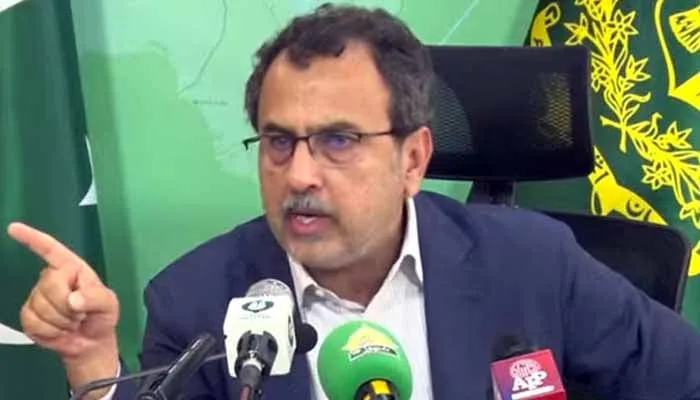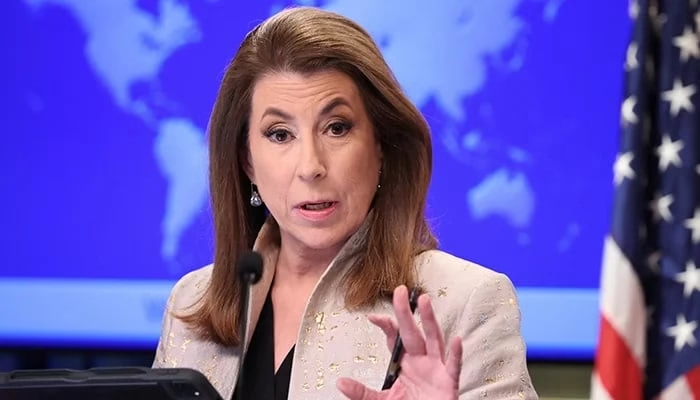Islamabad: Federal Energy Minister Owais Laghari has clarified that there is no International Monetary Fund (IMF) condition requiring the conversion of net metering to gross metering in Pakistan. In an appearance on Geo News’ program Geo Pakistan, Laghari addressed several critical issues concerning the country’s energy sector, including solar energy costs, the inefficiencies in the transmission system, and the impact of theft and corruption in electricity distribution.
Solar Energy and Net Metering
Laghari emphasized that the cost of installing a 5 kW solar system has significantly decreased over the past two years. “In the current situation, the recovery of the cost of a solar system can happen in a very short period,” he noted, highlighting the affordability and efficiency of solar power systems in today’s market.
He further clarified misconceptions regarding IMF conditions: “There is no requirement by the IMF to convert net metering to gross metering.” This statement aims to reassure consumers and stakeholders that the government’s solar energy policies are being crafted independently, prioritizing the benefits for the end-users.
Challenges in the Power Distribution System
Addressing the broader issues in the energy sector, Laghari pointed out the weaknesses in Pakistan’s electricity transmission system, which result in increased electricity costs. “Due to the weakness of the transmission system, the rate of electricity per unit increases by 2 to 3 rupees,” he explained. These inefficiencies not only burden consumers with higher costs but also indicate a significant need for infrastructure improvements.
Laghari also highlighted the severe impact of theft and corruption within the electricity distribution companies. “Theft and mafias within the electricity distribution companies contribute to a price difference of up to 5 rupees per unit,” he said. This criminal activity exacerbates the financial strain on the system and necessitates urgent reforms.
Privatization and Consumer Recommendations
In response to these systemic issues, Laghari mentioned that the government is considering the privatization of some distribution companies. “Privatization could lead to reduced prices and more efficient management of resources,” he asserted. The move to privatize is seen as a potential solution to combat the entrenched corruption and inefficiencies that plague the current state-run distribution networks.
Laghari also appealed to the public to adopt energy-saving measures, particularly by investing in energy-efficient appliances. “We request the public to invest in fans that use less electricity,” he advised, suggesting that consumer behavior can play a significant role in mitigating energy consumption and reducing overall costs.
Broader Energy Policy Implications
Laghari’s statements come at a crucial time when Pakistan is grappling with an energy crisis that includes frequent power outages and rising electricity costs. The government’s emphasis on solar energy is part of a broader strategy to diversify energy sources and reduce dependence on fossil fuels. By promoting solar power and clarifying policy directions, the government aims to encourage more widespread adoption of renewable energy solutions.
The minister’s reassurance about the lack of IMF conditions for net metering conversion is particularly significant for solar energy users. Net metering allows consumers to sell excess electricity generated by their solar panels back to the grid, thereby reducing their overall electricity bills. The absence of a shift to gross metering, where all generated power is sold at wholesale rates while consumption is bought at retail rates, ensures that consumers continue to benefit financially from their investments in solar technology.
Federal Energy Minister Owais Laghari’s recent statements provide a clearer picture of Pakistan’s current and future energy policies. By addressing the affordability and efficiency of solar power, clarifying the non-existence of IMF conditions for net metering, and highlighting the need for structural reforms in the power distribution sector, Laghari aims to build public trust and encourage investment in renewable energy.
The move towards privatization of distribution companies, coupled with consumer-focused recommendations, reflects a comprehensive approach to tackling the country’s energy challenges. As Pakistan navigates these complexities, the government’s commitment to transparency and efficiency will be crucial in ensuring sustainable energy solutions for the future.



